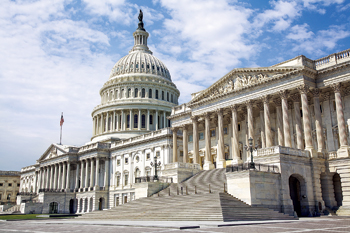Advertisement
Grab your lab coat. Let's get started
Welcome!
Welcome!
Create an account below to get 6 C&EN articles per month, receive newsletters and more - all free.
It seems this is your first time logging in online. Please enter the following information to continue.
As an ACS member you automatically get access to this site. All we need is few more details to create your reading experience.
Not you? Sign in with a different account.
Not you? Sign in with a different account.
ERROR 1
ERROR 1
ERROR 2
ERROR 2
ERROR 2
ERROR 2
ERROR 2
Password and Confirm password must match.
If you have an ACS member number, please enter it here so we can link this account to your membership. (optional)
ERROR 2
ACS values your privacy. By submitting your information, you are gaining access to C&EN and subscribing to our weekly newsletter. We use the information you provide to make your reading experience better, and we will never sell your data to third party members.
Environment
Quicksilver Exports Banned
Legislation will stop U.S. exports of elemental mercury in 2013
by Cheryl Hogue
September 29, 2008
RELATED STORIES
Mercury Export Ban
C&EN, September 26, 2008
Quicksilver Quandary
C&EN, May 28, 2007, page 26
House Passes Ban on Mercury Exports
C&EN, Nov. 19, 2007, page 36
U .S. exports of elemental mercury will be prohibited as of 2013, under legislation passed by Congress on Sept. 29.
The measure (S. 906) is aimed at preventing environmental release of the neurotoxic element and ensuring it is safely stored. Passage of the legislation came just days after the European Union adopted a similar export ban that takes effect in 2011.
Currently in the U.S., mercury collected from recycled equipment, fluorescent light bulbs, and mercury-cell chlor-alkali plants that are undergoing conversion to newer technologies or closing is bought by commodity brokers. The brokers then sell it on the world market.
Tons of commodity quicksilver end up at small-scale gold mining operations in the developing world, where workers, including children, use it to separate the precious metal from bits of rock and sand. Air and water around these mining sites are contaminated with the metal, and airborne mercury can travel long distances and even end up in U.S. waters, contaminating fish.
Susan Keane, mercury policy analyst for the Natural Resources Defense Council (NRDC), says the legislation "will curb the flow of mercury into global commerce" and keep it out of tuna and other widely eaten fish.
Under S. 906, the Department of Energy is obliged to establish by 2010 a long-term storage facility for excess commercial mercury not needed in the U.S. House lawmakers crafted this provision in consultation with the American Chemistry Council, the Chlorine Institute, the National Mining Association, NRDC, and the Environmental Council of the States, which is a coalition of top state environmental regulators.
The legislation also prohibits DOE and the U.S. military from selling or otherwise transferring their large stockpiles of mercury, which are Cold War leftovers.
Consumer goods containing elemental mercury are exempt from the export ban, according to S. 906.
The House of Representatives passed its version of the ban (H.R. 1534) in November 2007 (C&EN, Nov. 19, 2007, page 36). Ultimately, however, Congress adopted S. 906, sponsored by presidential candidate Sen. Barack Obama (D-Ill.) and Sen. Lisa Murkowski (R-Alaska).
The bill gained final passage just before Congress was scheduled to vote on a $700 billion economic bailout package. The White House has not indicated whether President George W. Bush will sign the mercury export ban legislation.




Join the conversation
Contact the reporter
Submit a Letter to the Editor for publication
Engage with us on Twitter